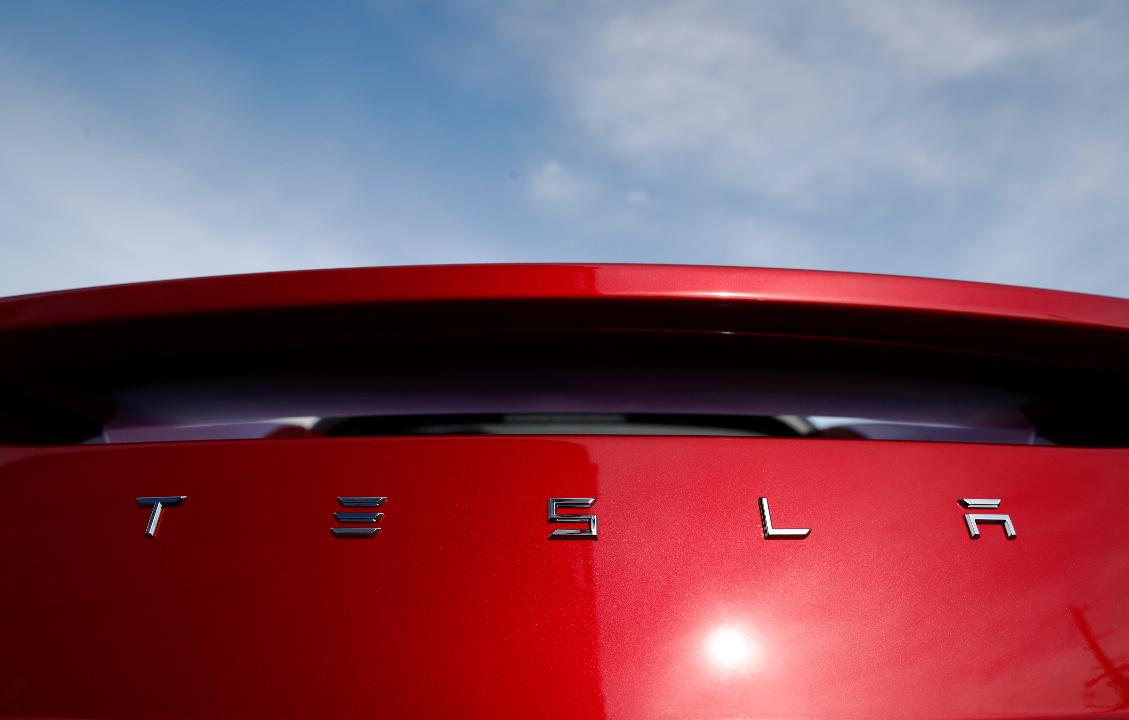Tesla under pressure as rivals prepare to launch new electric models
Tesla broke onto the scene promising to revolutionize the auto industry with its mass-market electric vehicle, but the progress the firm has made toward that goal may instead serve as a boom for the rush of competition on the horizon.
Legacy automakers including BMW, Mercedes-Benz and Audi, along with new entrants like Rivian, are either already offering or poised to roll out new plug-in options.
Compiling the issues facing Tesla is the slow adoption among U.S. consumers of emissions-free vehicles, as fuel prices remain low and interest in gasoline-powered sports utility vehicles and pickup trucks remains high.
Tesla "had free reign over the segment for quite a while, really no direct competition," said Jeremy Acevedo, managing director at Edmunds. "While one of the [new] models might be a thorn in their side, in aggregate it does become a bit of an issue."
Still, Tesla’s Model 3 sedan is not only the best-selling electric car in the U.S. – representing 80 percent of the 360,273 plug-in models sold in 2018 – but also the top midsize luxury car.
The line has been plagued, however, by consumer complaints of design and manufacturing issues, problems the company says have been addressed.
Customers will also soon have to pay more for a Tesla once a federal tax credit for electric vehicles is reduced in July and ultimately eliminated in 2020. The Palo Alto, California-based firm is offering a lower price, entry-level Model 3 for $35,000, but it can only be ordered via a physical store or over the phone.
Meanwhile, Tesla continues to struggle to scale production and increase sales in the U.S. while simultaneously building out its manufacturing capabilities in China. Model 3 shipments in the first quarter of 2019 fell 19 percent from the prior three-month period to 50,900 cars.
CEO and founder Elon Musk recently defended the figures, telling investors “there is not a demand problem. Absolutely not.”
And the pending launch of several new, emissions-free vehicles from companies like BMW and Mercedes is leading some experts to predict a sharp decline in Tesla’s stock, potentially resulting in a sale of the owned firm.
“Single-brand automobile manufacturing just doesn’t have the scale to compete on what is a very capital-intensive industry,” New York University’s Scott Galloway told FOX Business on Monday. “There’s real value there, but I think it will be purchased. Stand-alone automobile manufacturing is just almost untenable.”
The most positive impact of Tesla, Galloway argued, was that it woke “the Germans and Detroit from their electric slumber,” spurring more research and development into emissions-free cars.
Now, those traditional carmakers, including Volkswagen, Volvo and others, are all adding new electric vehicles to their lineup that could serve as competition to Tesla’s fleet.
Chevrolet and Nissan already produce their own mass-market emissions-free car, while Kia and Hyundai offer electric SUVs. Ford is partnering with Amazon-backed Rivian on a new electric model, which is preparing to launch a new electric pickup on its own.
And General Motors is shuttering several North American facilities amid a shift to autonomous and plug-in vehicles.
| Ticker | Security | Last | Change | Change % |
|---|---|---|---|---|
| TSLA | TESLA INC. | 411.11 | +13.90 | +3.50% |
| F | FORD MOTOR CO. | 13.80 | +0.08 | +0.58% |
| GM | GENERAL MOTORS CO. | 84.24 | +0.94 | +1.13% |
But even the rush of new offerings may not help improve what experts say is tepid interest in plug-in vehicles.
“Electric cars were not as disruptive as we all thought,” said Bharat Balasubramanian, a former Mercedes-Benz executive and head of the University of Alabama’s Center for Advanced Vehicle Technologies. “There’s just no incentive to it. They are more expensive, there’s the range anxiety to it. There’s the anxiety about recharging times.”
Musk recently outlined how Tesla’s effort put it well ahead of where the industry is moving, both on electric and self-driving cars.
“It takes us a bit of time to educate consumers about this, but I think people are starting to get it,” he told shareholders at its annual meeting. “If you’re going to make a choice about your most valuable asset, you want to look towards the future and say: where are we headed? Well clearly we are headed towards electrification, clearly we are headed towards autonomy.”
Launching new vehicle manufacturing operations from the ground up is a monumental challenge, one that Tesla has struggled to overcome as it seeks to ramp up the number of vehicles produced each month.
Last quarter, the company posted a $702 million loss and doesn’t expect to return to profitability until the second half of 2019, despite Musk’s claims last year that “every quarter going forward” would generate positive net income.
CLICK HERE TO GET THE FOX BUSINESS APP
But there are reasons to be optimistic about Tesla’s future.
The firm is making quick headway to get production up and running at its new Gigafactory 3 in Shanghai, according to Electrek. An ongoing trade dispute between the U.S. and China could complicate those plans, but the factory will also help the carmaker avoid tariffs as high as 40 percent.
Tesla is hoping to produce up to 3,000 Model 3 cars per week at the facility. Earlier this month, Musk said the exterior work on the Gigafactory 3 is almost complete.
“This will be obviously extremely important to our future because China is the largest electric car market in the world,” he told shareholders.




















